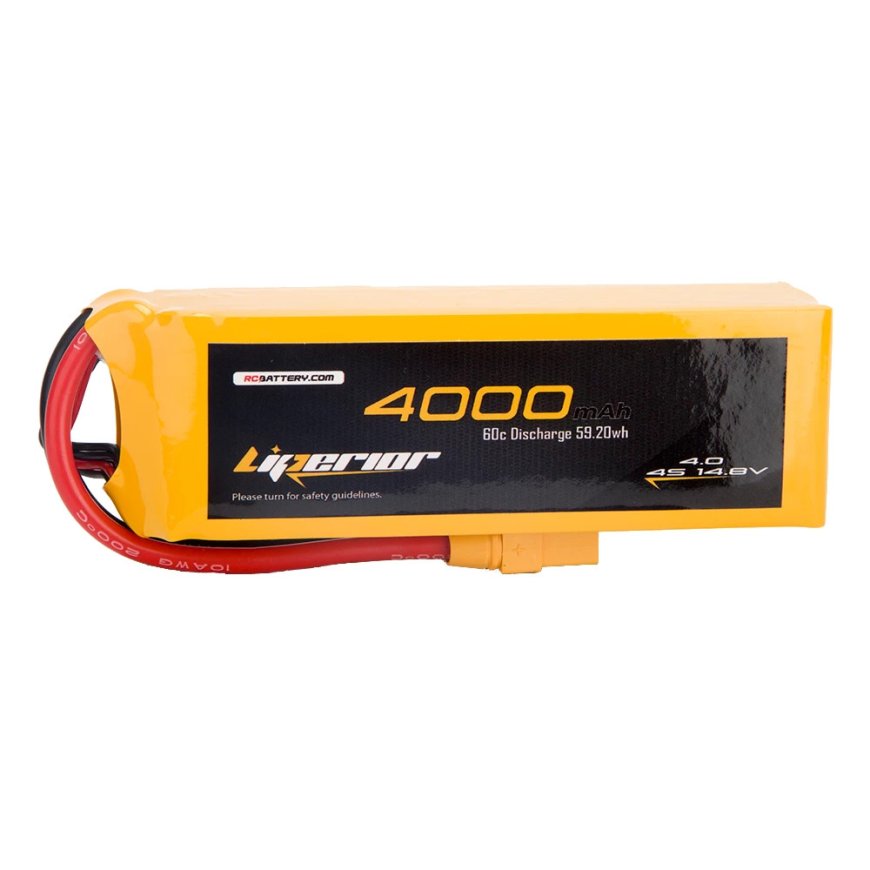How to Safely Charge and Store Your LiPo Batteries!
Discover essential tips for safely charging and storing LiPo batteries. Keep your devices safe and long-lasting. Learn more!

In the age of portable electronics, LiPo batteries have become indispensable power sources. From smartphones to drones, these batteries pack a punch. However, they require careful handling to ensure safety and longevity. Let's dive into everything you need to know about LiPo batteries.
Importance of LiPo Battery Safety
LiPo batteries are known for their high energy density, making them prone to safety risks if mishandled. Understanding proper usage and maintenance is crucial to prevent accidents like overheating or even fires.
Understanding LiPo Batteries
What are LiPo Batteries?
LiPo batteries, or Lithium Polymer batteries, are rechargeable power sources commonly found in consumer electronics and RC vehicles. They consist of multiple cells, each with a nominal voltage of 3.7V.
Key Features of LiPo Batteries
- Energy Density: High capacity in a compact size.
- Voltage Levels: Each cell provides 3.7V; packs are configured in series or parallel.
- Cell Configuration: Typically structured in packs of 1S (single cell) to 6S or more.
Safety Precautions Before Charging
Inspecting the Battery
Before charging, inspect your LiPo batteries for physical damage, swelling, or puffing, which indicates internal issues.
Setting Up a Safe Charging Area
Choose a fireproof, well-ventilated area for charging to mitigate risks of fire or fume exposure.
Proper Charging Techniques
Selecting the Right Charger
Use a charger specifically designed for LiPo batteries, matching voltage and current specifications to avoid overcharging or undercharging.
Step-by-Step Charging Process
- Connecting the Battery: Ensure correct polarity.
- Monitoring the Charging Process: Never leave unattended.
- Disconnecting Safely: Remove the battery once fully charged.
Charging Safety Tips
Using a Fireproof Charging Bag
Fireproof bags contain potential fires during charging, crucial for indoor use.
Avoiding Overcharging
Use chargers with overcharge protection to prevent exceeding safe voltage limits.
Safe Storage Practices
Preparing Batteries for Storage
Discharge batteries to safe voltage levels before long-term storage to prevent self-discharge issues.
Choosing the Right Storage Environment
Store LiPo batteries in cool, dry places away from flammable materials and direct sunlight.
Safe Disposal of LiPo Batteries
Legal and Environmental Considerations
Dispose of damaged or old batteries at designated recycling centers to prevent environmental hazards.
Advanced Safety Measures
Using a Battery Management System (BMS)
BMS ensures balanced charging and discharging, enhancing battery lifespan and safety.
Fire Prevention and Extinguishing
Know the types of fire extinguishers suitable for lithium battery fires (Class D) and emergency procedures.
Maintenance and Care Tips
Regular Inspection and Maintenance
Inspect batteries for wear, clean terminals, and ensure secure connections to prevent malfunctions.
Common Myths and Misconceptions
Myth: Fully Discharging LiPo Batteries is Necessary
Truth: Deep discharge can damage LiPo batteries, affecting performance and lifespan.
Myth: LiPo Batteries are Inherently Dangerous
Truth: Proper handling and adherence to safety guidelines mitigate risks effectively.
Summary
Proper charging and storage are vital for maximizing LiPo battery performance and lifespan. By following safety protocols and understanding their construction, users can safely enjoy the benefits of these powerful batteries.
Key Takeaways
- Regularly inspect LiPo batteries for damage or swelling.
- Use dedicated chargers and fireproof storage.
- Dispose of old batteries responsibly.
Frequently Asked Questions (FAQs)
What is the best way to store LiPo batteries long-term?
Store LiPo batteries at 50% charge in a cool, dry place away from flammable materials.
How do I know if my LiPo battery is damaged?
Look for physical deformities like swelling or puffing and test functionality before use.
Can I charge LiPo batteries overnight?
It's not recommended due to safety risks; monitor charging processes to prevent accidents.
What should I do if my LiPo battery catches fire?
Use a Class D fire extinguisher or cover the fire with a fireproof blanket; avoid water.
How often should I check the voltage of my stored LiPo batteries?
Check every 1-3 months to ensure they remain within safe voltage limits.
What's Your Reaction?
























